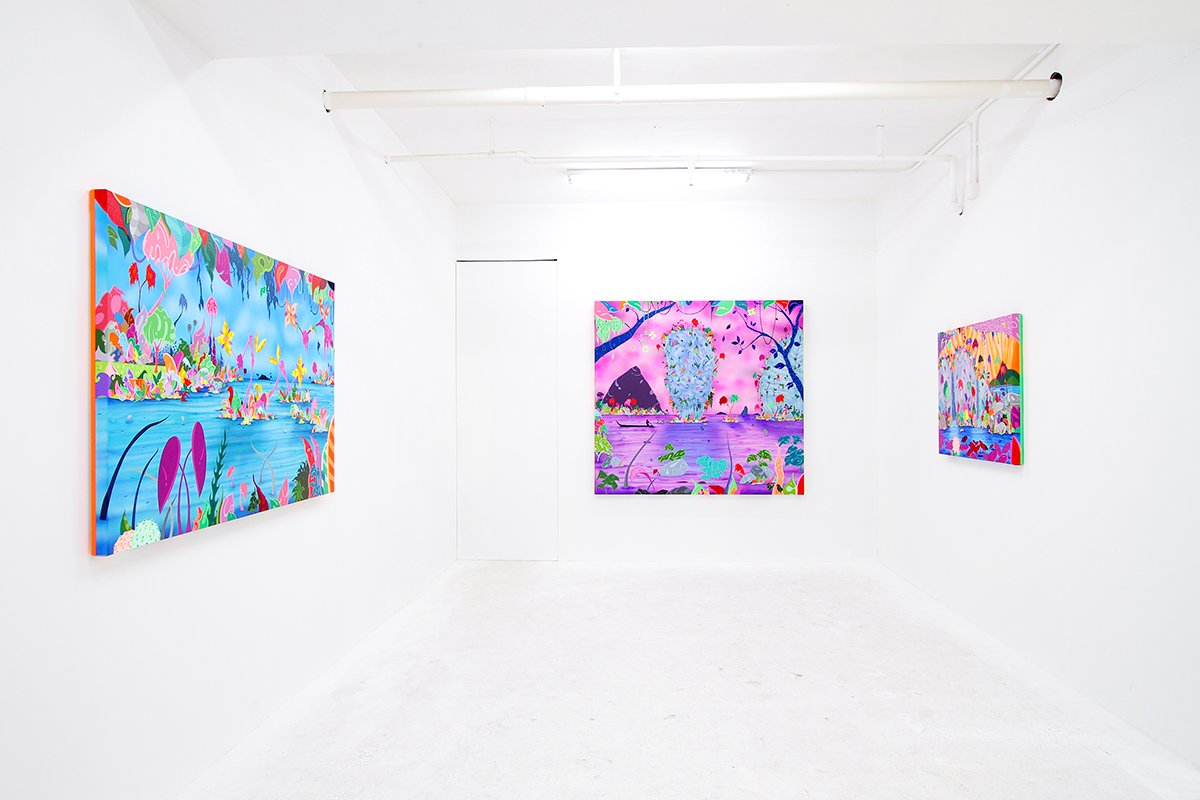Erik Parker
Erik Parker was born in Stuttgart, Germany in 1969 and currently lives and works in New York. After attending the University of Texas at Austin and receiving a master of fine art from Purchase College in New York, Parker quickly gained prominence for his participation in the inaugural "Greater New York" exhibition that took place in conjunction with MOMA PS1 in 2000. Ever since, he has held exhibitions in museums including the Aldrich Contemporary Art Museum and The Modern Museum of Art Fort Worth, as well as international galleries throughout the world such as Paul Kasmin gallery, Honor Fraser, and Galeria Javier Lopez.
Parker describes the roots of his works as deriving inspiration from elements of Lowbrow Art conveyed in underground comics such as MAD magazine, satirical illustrations, and that of graffiti. Further, he mentions learning the importance of developing an 'anti-establishment' attitude that is unbound by conventional rules while studying with artist Peter Saul at the University of Texas at Austin. It is no understatement that this very experience had presented a pivotal impact on the course of Parker's subsequent artistic practice. It is to note that Parker's oeuvre had naturally been conceived through an interest towards, and as a result of the influence of Chicago Imagists such as Jim Nutt and Karl Wirsum, as well as the likes of Royal Robertson who respectively were yet to receive acclaim for their works at the time, however had later come to be reevaluated and currently recognized as representative figures of the American art scene.
Parker's paintings predominantly consist of four major series that he has continued to develop throughout the course of his career. "MAPS," which at a glance seemingly embodies the presence and ethos of outsider art, brings together aggregated clusters of texts that are roughly yet correlatively arranged and shaped into various entities. "HEADS" is a series of portraits that symbolically represent the mappings of the artist's own brain while simultaneously delving into the depths of his mind and streams of thought. "Hieroglyphics" and "STILL LIFES" also capture much of Parker's characteristically graphic style, the former showcasing pictogram-like images of monsters, symbols, and forms reminiscent of words –a contemporary Rosetta Stone of sorts, with the latter depicting the artist's unique interpretation of classic still-life arrangements of plants and landscapes. Through such thematic concerns, Parker serves to graphically convey the state of politics, society and economic demographics that permeate out current world through his unique compositions that swell and seethe with elements of pop culture, music, and history.
TBC









